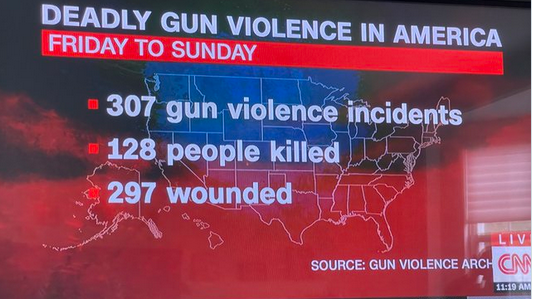Photos: YouTube\Slideplayer\Twitter
In the following commentary, Dr. Brooks Robinson, the founder of the Black Economics website, examines the media’s role in the perpetuation of violence.
Consider the following excerpt from a September 2021 BlackEconomics.org commentary “Incorrect Diagnosis and Prescription.”
The media informs us of what is transpiring in our world. It tells us to be hungry and what to eat. It tells us to get sick and which medicines to take or procedures to undergo to cure our illnesses. It tells us what favorable leisure is and how to enjoy that leisure. It tells us which clothes, shoes, makeup, and scents to wear. It tells us when to shop because the “sale is too good to miss.” It tells us which forms of transportation we should employ. It tells us that education is important and the sources we should seek out to obtain that education. It tells us the job that is correct for us, how to obtain that job, and how to act in that form of employment. It tells us how to invest our money to secure transportation, housing, and a nest egg for our retirement. Finally, it tells us how to die and what to expect after death.
Given the recent spate of mass murders across the US, we should add: “The media tells us how, when,where, and who to engage in violent murder.”
Which media source is guilty? All of them: The Internet, movies, television, the gaming industry, radio, books, newspapers, and magazines.
These media sources convey stories about, images of, and increase the currency of violence. The simple withholding of violent actors’ names and images from the media only increases the intrigue. Hours and days of continuous coverage of violent mass murders serve to emphasize to prospective violent actors that their actions will enter the historical record as the media will chronicle them— ranking them among those who have committed similar violent acts. The media continues to reestablish the bar and dares prospective violent actors to meet and/or exceed it.
During the aftermath of the recent violent mass murders, the media has identified culprits for the violence: Mental health; gun accessibility due to laxed law; and police failure to act promptly. But the media has not turned the camera or microphone on itself and asked: How do we engender violence?
Why does the media not look inward concerning its role in promulgating violence? Because violence is a lucrative and economy-stimulating activity with numerous players. They all appear when another mass murder occurs. It is entertainment.
Although Black Americans are seldom the perpetrators of mass murder, the mass murder of Black Americans is very problematic:
• It highlights our extreme vulnerability; we appear as sitting ducks.
• Black faces in lofty spaces— whether politicians, leaders of national or local organizations, or police chiefs—appear inept and unable to halt the bloodshed.
• It conveys to anti-Black haters that mass murder is an effective method for expressing their hatred and eliminating the despised ones. We can all agree that violent behavior has its origin in the mind. Violent thoughts can originate while or after:
• Engaging a computer game.
• Viewing a violent cartoon on television, in movies, or in newspaper comic strips.
• Reading a grade school primer about the American frontier.
• Viewing police, action, sports, or dramatic violence in movies, on television, or on the Internet.
• Listening to violent lyrics on the radio or the Internet.
• Reading about violence in books, magazines, newspapers, and the Internet.
• Reading about and/or observing violent behavior through social media.
The portrayal of violence in the media can be found almost everywhere, and it has the power to condition, motivate, and elicit violent behavior. Add to this combustible mindset the tools of violence (including guns), and one guarantees a horrid outcome.
We should never forget the media’s power to shape thinking and behavior. Given the media’s ubiquity, it should always be a point of inquiry when considering socioeconomic outcomes.
For example, we believe that the media played an important historical role in promoting and sustaining anti-Black sentiments.[1] Therefore, we should carefully guard our consumption of media so as to not self-reinforce violence. Also, we should make every effort to reorient media away from its just-described historical role so that it no longer shapes, motivates, or elicits violence against Black Americans by others.
If we do not take these actions, then restricted access to guns and improved police performance in addressing violence will not halt violence because the media will still shape, motivate, and elicit violent behavior. We must turn the cameras and microphones around and say: “The Media Too.”
References:
[1] “Anti-Black sentiments” is intended to convey discrimination against Black Americans. It is common knowledge that social scientists have proven that discrimination is an important causal factor for many Black American adverse socioeconomic outcomes
Dr. Brooks Robinson is the founder of the Black Economics website.
















